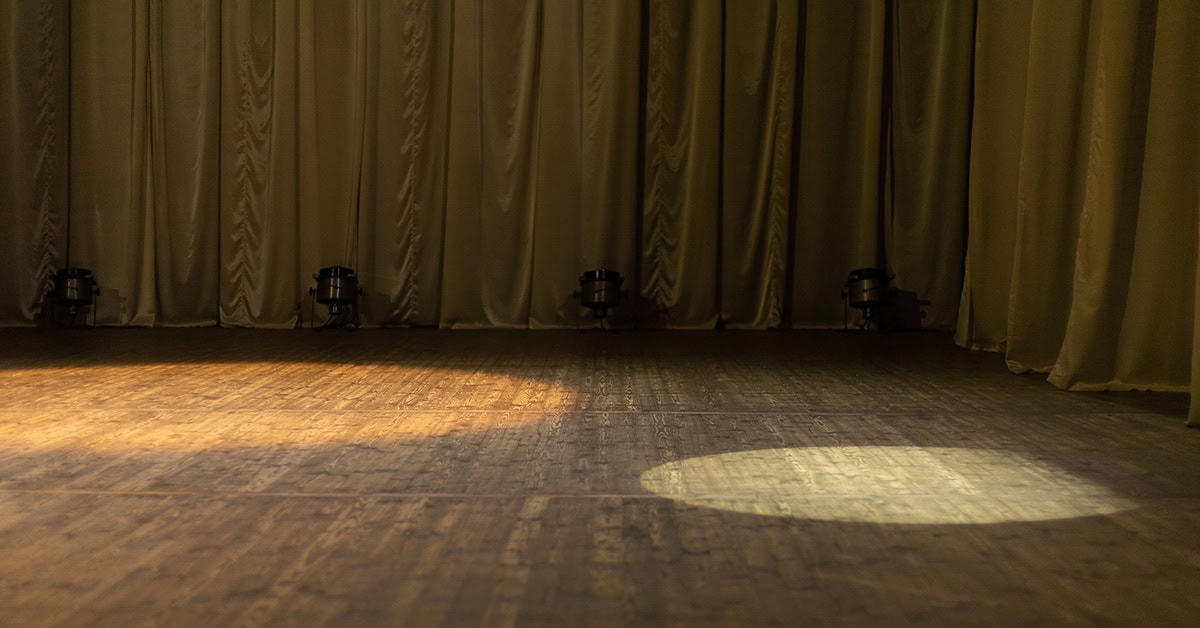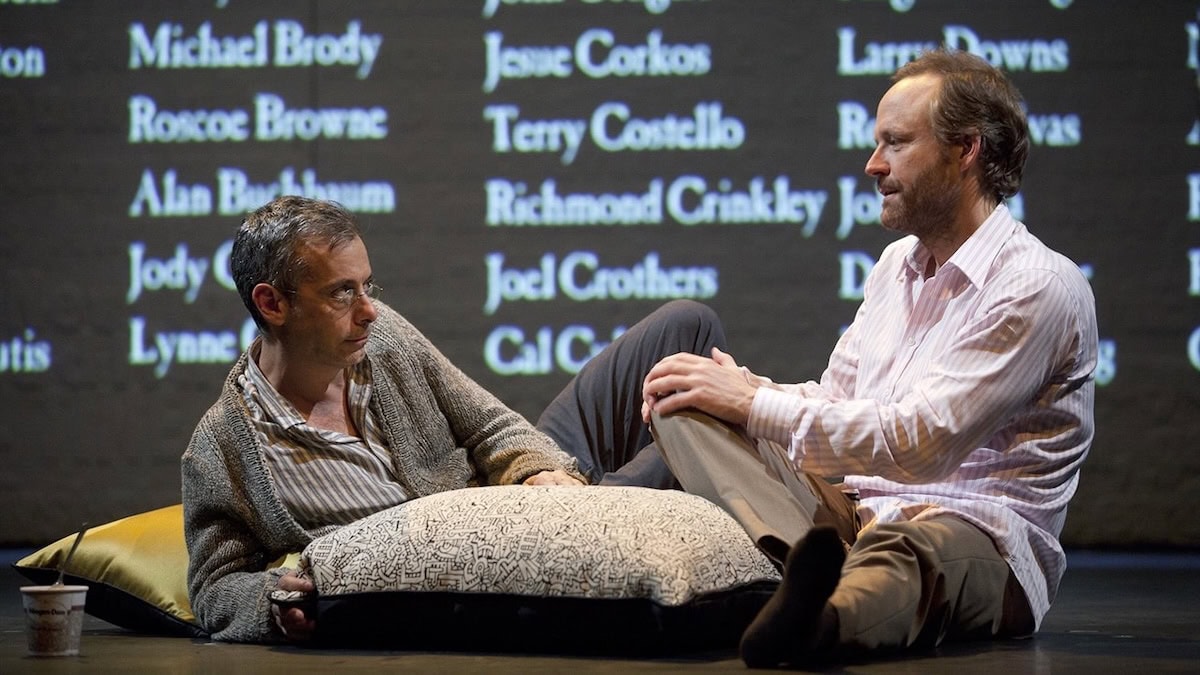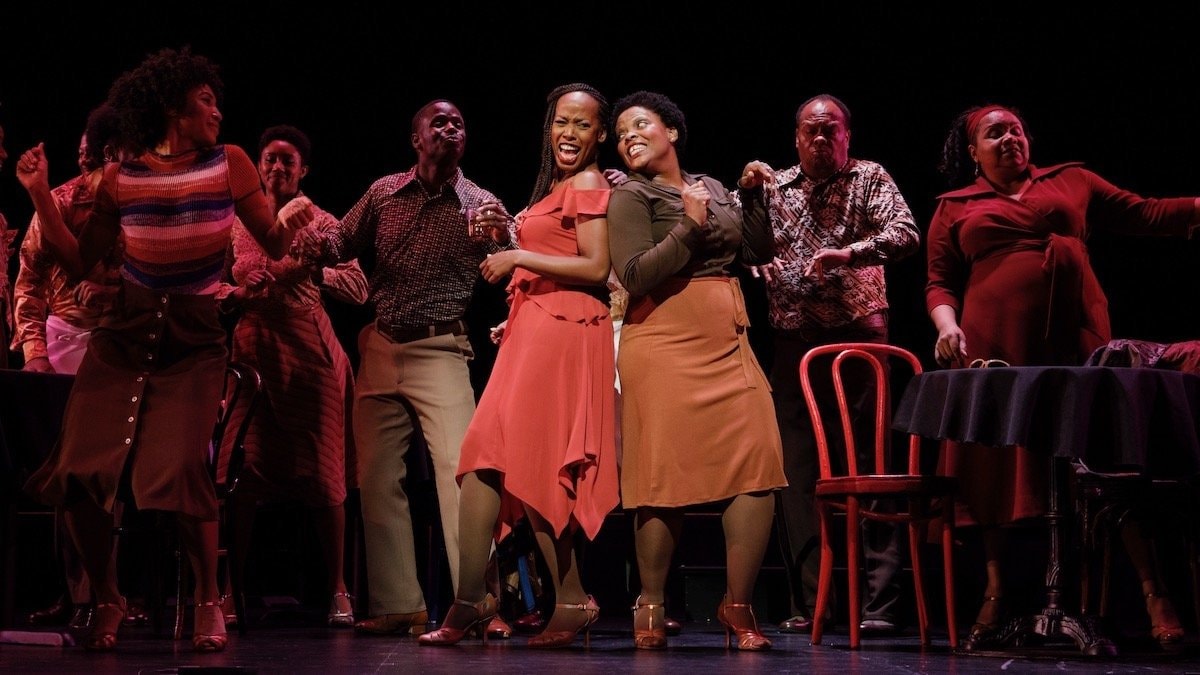
On October 16, 2012, Natasha, Pierre & The Great Comet of 1812 (US/UK) premiered in New York City at Ars Nova. This year marks the show’s tenth anniversary – and we’re delighted to announce that it’s now available for licensing to educational institutions!
In honor of the occasion, we sat down with Dave Malloy to chat about his inspirations, the process of adapting Russian literature, the first production and its subsequent Broadway transfer, and what opportunities the show might afford educational drama programs.
Let’s start at the beginning: how did you decide to infuse music into Leo Tolstoy’s War and Peace?
I first read War & Peace while playing piano on a cruise ship. I remember being so enthralled by the scope of Tolstoy’s vision; the book was a trashy romance novel, a family drama, a hilarious farce, a military thriller, a philosophical scripture, a treatise on history, all wrapped into one giant, messy, nearly unmanageable tome. When I got to Volume 2, Book 5, I became obsessed, reading the whole 70-page slice in one sitting. At the end of that section, I had an epiphany: this would make a perfect musical. In particular, the way Tolstoy balanced Natasha’s tumultuous love affair and downfall with Pierre’s endless existential searching reminded me of the classic two-couple structure of many classic musicals. And of course there was so much music in the story, from the night at the opera to the folk music world of Balaga, and so many rich characters and set pieces… the whole thing seemed perfectly suited to the musical form.
In a review for the initial production at Ars Nova, The New York Times called the show an “improbably wonderful electropop opera.” How would you describe the score?
The score is heavily influenced by Tolstoy’s all-encompassing vision of humanity, celebrating everyone from the most humble troika driver to the Tsar and Napoleon. Taking that holistic view of humanity as a cue, the score pulls from a wide range of genres, from Russian ballet and opera to golden age musical theater to contemporary indie rock and electronica, each genre suggested by a specific character or scene. My own musical tastes are wide-ranging as well, so in all of my musicals there is an interest in pulling from as many sources of inspiration as possible, trying to avoid any stock “musical theater sound” and instead pursuing a sound that is eclectic and unpredictable.
Who are your musical and theatrical influences?
Many many many; but some of the most influential on Comet in particular are Björk, Prince, Tom Waits, Arcade Fire, Tchaikovsky, and Bartok. From the theater world, I started out making experimental and devised theater, so works by Richard Foreman and Robert Wilson made a strong early impression. I also saw Les Misérables on a touring production in Cleveland when I was 9 or so, which had a profound effect on me.
Each character has their own theme in the show – Natasha has a beautiful, longing piano score underneath her more tender moments, and when Anatole’s electrifying presence appears during “The Opera,” electronica seeps into the music. How did you discover the different character themes?
Yes, the musical palette of each song is determined by the characters, though I take a pretty loose approach to how strictly those rules are adhered to. But Sonya’s plaintive and earnest aria seemed to cry out for the simplicity of indie folk; while Anatole’s electrifying charisma, sexuality and hedonism seemed to cry out for club beats.
For me, one of the most breathtaking moments in the musical is during “Pierre & Natasha,” when the underscoring piano completely drops out, and we get this moment of sincere, spoken text. As a composer, how do you think silence amplifies the emotional stakes of a theatrical moment?
I’ve always been a bit suspicious of the common musical theater dictum that characters “sing only when the emotion becomes so great that they must.” “Pierre & Natasha” is a deliberate inversion of that, setting the most emotional scene of the show as simply as possibly, so we can focus on the dialogue and the exchange between these two lost souls. And Pierre’s quasi-proposal, the most emotionally vulnerable moment in the libretto, becomes the show only unscored, spoken line; he doesn’t have any music to hide behind.
The original staging of The Great Comet transformed Ars Nova’s theater into a Russian nightclub, complete with vodka and pierogies on cabaret tables. How did you and director Rachel Chavkin decide to stage the show that way?
While writing the show (in 2010) I took a trip to Russia, and one magic and foggy night a friend and I found our way to a little place in Moscow called Café Margarita. We had to wait in the doorway until there was room for us at one of the many small wooden tables, each packed with pelmeni (Russian dumplings) and vodka, and these bizarre, handmade musical shakers, which everyone was shaking in time with an incredible classical pops trio (piano, violin, viola), playing “Flight of the Bumblebee” and “La donna è mobile” and the like. When we finally got a seat, I ended up inches from the viola player; hearing her counterpoint in my ear, watching all the laughing, joyous faces as people drank and shook and ate and laughed and shook and drank some more, I realized this was where Comet needed to be set; not at a stuffy aristocratic dinner club, but at a raucous democratic tavern, with everyone playing along. A space where the audience itself became part of the story. I told Rachel and set designer Mimi Lien about this epic night early on; but it was their incredible artistry that brought this vision to life.
The Great Comet tells an old story with new music – the lyrics are rife with irregular rhythms, direct quotes from War and Peace, and third-person narration. How did the narration support the original staging?
From the start, the intention was to really embrace Tolstoy’s language, keeping his peculiar way of writing (made all the more peculiar through translation) intact, in which every blush, sigh, laugh and tear is lovingly detailed. Starting from this text, I wrote lyrics combining word-for-word Tolstoy, free adaptation and some modern flourishes. This novelistic text also resulted in music that freely combines song forms with a sort of accompanied recitative style, that I probably learned from singing in a jazz choir in high school. We sang a lot of “vocalese,” in which lyrics are written for famous jazz solos (Lambert, Hendricks & Ross are my favorite purveyors of the style). This style fit both the classical, operatic sections and the more contemporary, electronica ostinatos (introduced by the entrance of Anatole) of the score.
You had a beautiful, expensive production on Broadway. How can educational institutions present this show on a limited budget?
Comet began at Ars Nova, an off-Broadway venue of about 80 seats. While watching the show grow in size and budget on its journey to Broadway was wonderful, there’s always been a soft spot in my heart for the scrappier, more DIY, original version of the show. I’m a big believer in putting on shows in one’s living room, with minimal production design; what really matters is the story and the music.
In schools, The Great Comet has great potential to be produced in tandem with a unit on Russian literature. Have you ever studied Russian literature in school? What aspects and themes of Tolstoy’s writing do you hope schools will explore?
In college I was a double major in Music Composition and English Literature; that’s where I was first exposed to the Russians and became obsessed, devouring Tolstoy, Dostoyevsky, Chekov and the rest. There is something startlingly contemporary in these works, in how these authors convey the endless complexity of simply being alive. Tolstoy’s themes of existential searching and finding meaning in other people seem particularly relevant to our often fractured and impersonal modern world.
If you could give one piece of advice to groups who want to perform Natasha, Pierre and The Great Comet of 1812, what would it be?
Have fun! My god, if we aren’t having fun making theater, then what are we doing it for? Also stay authentic, trust your collaborators, and don’t riff.
To license Natasha, Pierre & The Great Comet of 1812, visit Concord Theatricals in the US or UK.

Recommended Shows for Drama Festivals

The Truth Behind… The Normal Heart

